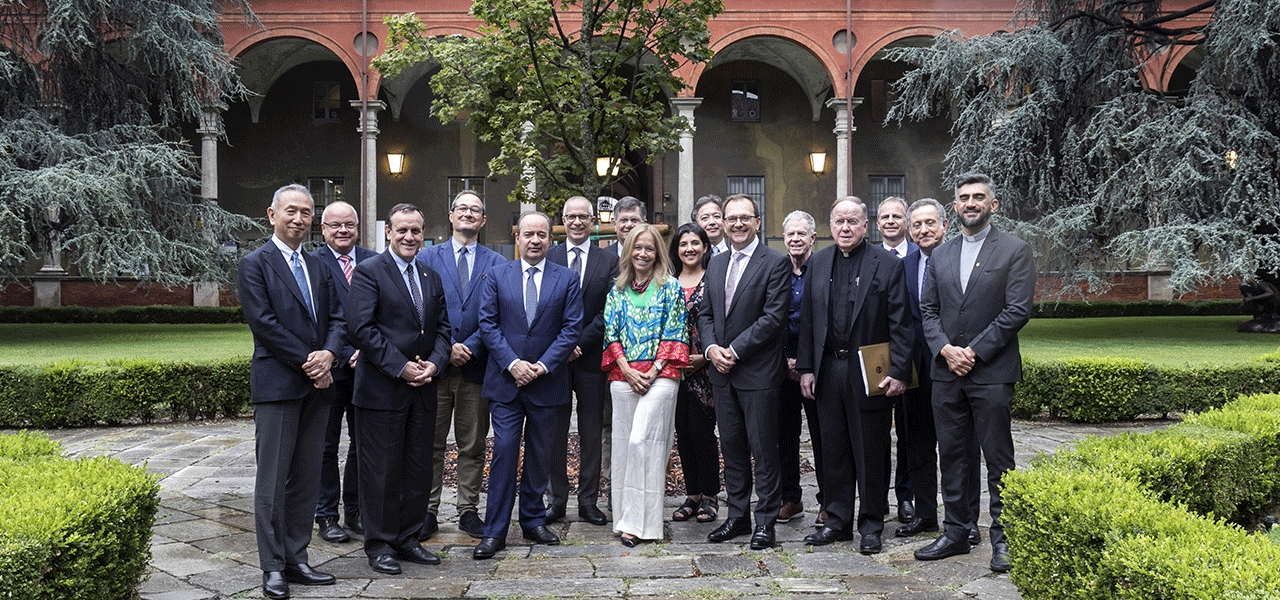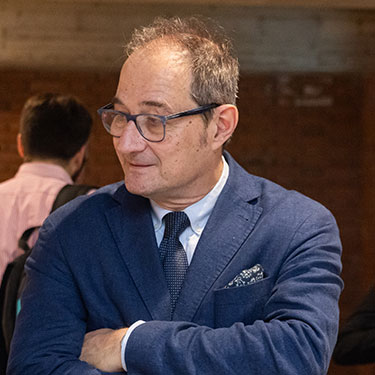Humanists will have to learn mathematics because Artificial Intelligence will revolutionize their disciplines. There are so many implications that AI is already having on the world, and SACRU - an international network of Catholic universities - has chosen to dedicate its first Scientific Colloquium, held in the Milan campus of Università Cattolica del Sacro Cuore on 13-14 July, to the role of academic institutions in the age of Artificial Intelligence.
More than eighty professors and researchers from Chile, Spain, Australia, the USA, and other countries around the world, together with the eight Rectors and President of the SACRU Universities, came together to discuss how the knowledge and research activities of the Universities in the network can be brought together to help society tackle one of the great challenges facing the world today. The international conference was opened by the keynote lecture of Cardinal José Tolentino de Mendonça, Prefect of the Dicastery for Culture and Education. The plenary sessions were chaired and coordinated by Antonella Sciarrone Alibrandi, Full Professor at Università Cattolica and Undersecretary of the same Dicastery.
«In these days, we have hosted a Scientific Colloquium on Artificial Intelligence in Milan that addressed the topic not only from a technological point of view and potential social impact,» Professor Pier Sandro Cocconcelli, Vice Rector at Università Cattolica and reconfirmed as Secretary-General of the SACRU network for the next three years, said. «It also focused on how universities will react to a context change characterizing the educational sector nationally and globally. The eight Universities share a common mission and vision: to educate the younger generations and to produce research that has a true impact on society. To pursue these goals, SACRU has developed a five-year- strategy that includes strong cooperation among the eight Universities.
Marco Carlo Passarotti, Full Professor of Computational Linguistics at Università Cattolica, emphasized the need to educate on Artificial Intelligence, even before involving tools such as ChatGPT in educational processes, in the speech that closed the Colloquium: «This AI education needs to be included in any educational curriculum as early as primary school, to bridge the gap between highly skilled professionals and society. Universities must support primary education on AI with skills and tools.»
This also implies an internal reflection within universities on how to align their teaching curricula with the needs of the job market, increasingly shaped by the spread of Artificial Intelligence: «To support their graduates with the right skills and knowledge, it is mandatory to no longer have disciplinary boundaries and to launch interdisciplinary degree courses and master's degrees,» Passarotti reiterated.
For example, the humanities can become experimental disciplines thanks to AI: «Humanists have always made use of data,» Passarotti noted, «but they have never had such a large amount of data at their fingertips and such a quality of massive processing. This computational breakthrough does not remove the role of humans; yet, it is a new challenge for them: it puts data and correlations between data in their hands like never before. And it makes their work replicable. No more separation between Humanities and Science disciplines: AI is an opportunity for multidisciplinarity.»
For the Universities of SACRU, Artificial Intelligence does not threaten humans but instead enables them to achieve a greater understanding of themselves and the world, if used correctly. And this is why it is crucial to promote a vision of AI as a catalyst for improving human potential: «Universities have always had a profound influence on individuals and society. Now, universities must play this role to meet the challenge of the necessary evolution of AI towards an approach that puts humans at the center. And Catholic universities have a strong duty to inform about the impact of AI, making it crucial to recognize and harness that impact to steer AI development towards an approach that is willing to respect human dignity, to avoid delegating moral responsibility to machines,» Passarotti concluded.
The outcome of these two valuable days of discussion will be a position paper to be published by the end of the year, which will formalize the Universities' positions and proposals on the central tasks of universities, i.e. teaching, research and service to society, and how to adapt them to the age of Artificial Intelligence.






